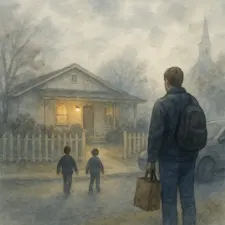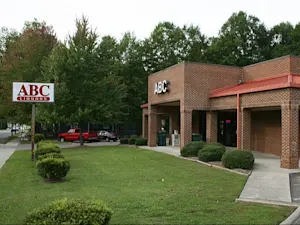
What Aging Parents Wish Their Kids Knew
They don't always say it out loud. But it's there — in the long pauses, the polite refusals, the way your mom smiles while you talk but doesn't quite meet your eyes.
Your aging parents may not spell it out, but they wish you knew. They wish you understood what it's really like to grow older — not just the aches and doctor visits, but the quiet, sometimes lonely, emotional shift that happens when the world begins to treat you as a shadow of who you once were.
And despite how it might seem, they're not pushing you away. They're holding on — to dignity, identity, independence — and they want you to see that.
The Emotional Cost of Feeling Invisible
One of the most painful truths for aging parents is the feeling of becoming invisible — not just to strangers, but sometimes to their own children. In a world obsessed with youth, older adults often feel dismissed or overlooked, especially when others interrupt them, make assumptions about their abilities, or ignore their input during meaningful conversations.
They're not asking for special treatment — just to be acknowledged and to be included.

Independence Is an Act of Pride
While adult children may rush in with the best intentions, that help can sometimes feel like control. Many older adults see every lost responsibility — handing over the car keys, downsizing their homes, being told where they can or can't go — as another chipped piece of their identity.
Even when they're struggling, aging adults want a say. They crave autonomy. Being left out of decisions about their own lives is not only frustrating; it's humiliating.
Stop Checking In — Start Connecting
Your daily "just checking in" text? It's appreciated. But for your parents, it might not feel like enough. Older adults long for meaningful interaction — the kind where they're not just being monitored or managed but genuinely appreciated.

They miss real conversation. They miss you. Not the version of you that schedules appointments or drops off groceries — the version who once told them everything and laughed with them over burnt pancakes on a Sunday morning.
Aging Means Grief — And a Need for Grace
Aging doesn't just mean bad knees or trouble sleeping. It means watching lifelong friends pass away. It means sorting through boxes of belongings no one wants and wondering if your memories matter to anyone else. And it means facing an unsettling truth — that life is winding down.
So, when you say "cheer up" or offer a quick solution, it can feel dismissive. Sometimes, they just need you to listen — not to fix, not to teach, but to sit in the moment with them.

They Want to Be Part of Your Life — Not Just Your Plans
They don't want to be a task on your to-do list. They want to be in the photos, the jokes, the stories. They want to feel useful. They want to feel needed. Whether it's passing down a recipe, watching the grandkids, or sharing advice — they want to contribute.
They've spent decades loving you, teaching you, and showing up. Now, more than anything, they want to know they still matter.
A Second Chance to Show Up
You don't need to have the perfect response. You just need to show up — consistently, compassionately, and with curiosity.
Aging isn't about fading away. For many, it's about discovering what really matters. And if you're lucky, it's a chance to deepen your relationship in ways neither of you ever expected.
Because the truth is, they've always shown up for you. And now, they're hoping you'll do the same.
References: CONSIDER THIS: Things Aging Parents Wish Their Adult Children Understood | A Few Things Seniors Wished Their Adult Children Knew | Boomers Wish Their Adult Children Understood 11 Details About Aging | What aging parents want their adult children to know























